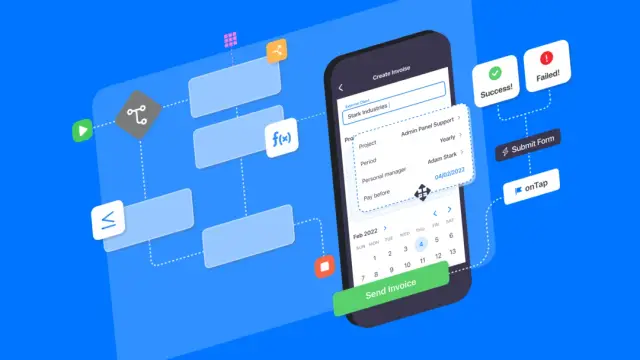Ecommerce Apps: Integrating with Social Media Platforms
Explore the benefits, challenges, and best practices in integrating ecommerce apps with popular social media platforms to boost sales and enhance customer experience.

The Growing Importance of Social Media Integration for Ecommerce
The expanding influence of social media on consumers' daily lives has presented a unique opportunity for ecommerce businesses to reach wider audiences. Social media platforms such as Facebook, Instagram, and Pinterest have become essential tools for ecommerce marketers to promote their products and engage with customers through a more relaxed, dynamic, and interactive environment.
Social media integration, the process of adding social media platforms' functionalities and features to ecommerce apps, has gained considerable importance. This integration allows businesses to enhance the customer experience by providing seamless social interaction, user-generated content, and direct access to purchase items through social platforms. It encourages customers to share their experiences with others and is crucial in guiding their purchase decisions.
Integrating ecommerce apps with social media platforms is a significant step for businesses to embrace the possibilities of social commerce – buying and selling products and services within social media platforms. With ecommerce on a steady rise and social media playing a dominant role in consumer interactions online, it is evident that the integration of ecommerce and social media is no longer an option for businesses but a necessity.
Benefits of Integrating Ecommerce Apps with Social Media Platforms
Combining the power of ecommerce apps and social media brings many benefits to businesses in the increasingly competitive online market. Here are some key advantages of integrating ecommerce apps with social media platforms:
- Increased sales through social commerce: Social media platforms present ecommerce businesses with the opportunity to sell their products directly to customers. By integrating features like shoppable posts, buy buttons, and native checkout options, businesses can leverage social media's influence to drive more sales.
- Improved customer experience: Integrating social features into ecommerce apps creates a seamless and engaging shopping experience for customers. Features like social login, product recommendations based on social likes, and the ability to share purchase experiences can lead to higher satisfaction and increased customer retention.
- Enhanced customer loyalty: Social media platforms allow businesses to interact with their customers, answer queries, and address concerns. By actively engaging with customers on social media, businesses can build trust and foster a sense of loyalty, resulting in repeat purchases and long-lasting customer relationships.
- Access to user-generated content: User-generated content (UGC), such as product reviews, ratings, and customer photos, is highly valuable for ecommerce businesses. Integrating UGC into ecommerce apps can help build credibility, provide social proof, and influence potential buyers' decisions.
- Valuable customer insights: Integrating social media with ecommerce apps allows businesses to collect and analyze customer data more effectively. With access to customer preferences, behaviors, and demographics data, businesses can make better-informed decisions regarding product offerings, marketing strategies, and personalization efforts.

Challenges in Integrating Social Media and Ecommerce Apps
While the benefits of integrating ecommerce apps with social media platforms are evident, businesses need to overcome certain challenges to ensure a smooth and successful implementation:
Addressing privacy and security concerns
Privacy and security are top concerns when integrating social media into ecommerce apps. Businesses must ensure that customer data is collected, stored, and used responsibly, following the necessary legal requirements and industry best practices.
Maintaining consistent branding
Businesses should maintain consistency in their brand messaging, imagery, and tone of voice when integrating social media platforms. This ensures a cohesive brand image and a uniform customer experience across all channels.
Ensuring seamless user experience
Integrating social media into an ecommerce app should not affect the app's performance or user experience. It is important for businesses to ensure that the integration is smooth and functional, and does not cause any glitches, load-time issues, or navigation difficulties.
Managing multiple social media platforms
With numerous social media platforms available, businesses need to determine which ones best suit their target audience and business goals. Moreover, managing multiple platforms can be complex, so businesses should invest in tools and resources to streamline their social media management processes.
Despite these challenges, the benefits of integrating ecommerce apps with social media platforms far outweigh the potential obstacles. By understanding the risks and implementing best practices, businesses can capitalize on the opportunities presented by social media integration to enhance their ecommerce success.
Best Practices for Integrating Ecommerce Apps with Social Media
Integrating your ecommerce app with social media platforms requires a careful approach. Here are some best practices to follow that can help you achieve a successful integration:
- Understand your target audience: Before choosing which social media platform to integrate with your ecommerce app, you need to know your target audience and their preferences. Choose platforms that your target audience frequently uses and engages with to ensure you provide the best possible user experience.
- Choose the right platforms: Not all social networks suit your ecommerce app. Research different platforms and select the ones that match your demographics, industry, and user base. Common platforms for ecommerce integration include Instagram, Facebook, Pinterest, and Twitter.
- Integrate social login options: Offering social login options simplifies the registration process for your users, increasing the chances of successful customer conversions. Social logins help users seamlessly access your ecommerce app using their social media credentials, saving time and effort compared to creating an entirely new account.
- Enable social sharing: Allow users to easily share their favorite products, reviews, or promotions from your ecommerce app on social media. This can increase your app's exposure and engagement and turn customers into brand advocates. Ensure to include share buttons that are easily accessible and visible on product pages.
- Utilize user-generated content: Encourage users to create and share content related to your products on social media. User-generated content (UGC) can effectively build trust, showcase real-life product applications, and create a sense of community around your brand.
- Monitor analytics for continuous improvement: Track user behavior, engagement, and conversions that result from your social media integration efforts. Analyze the data to gain valuable insights and make data-driven decisions to improve your ecommerce app’s performance and customer experience.
How AppMaster Can Help You Build Social Media-Integrated Ecommerce Apps
AppMaster is a powerful no-code platform that helps businesses build ecommerce apps with seamless social media integration. Using AppMaster's advanced features and tools, you can easily create and manage your ecommerce app while leveraging the benefits of social media engagement. Here's how AppMaster can help:
- Visual Design Tools: AppMaster offers a user-friendly drag-and-drop interface for designing both the frontend and backend of your app. This makes it easy to incorporate social sharing buttons, social login options, and other social media features without any coding knowledge.
- Business Process Design: AppMaster allows you to create custom business processes tailored to your unique ecommerce needs. This automation allows you to streamline customer interactions and communications via social media, making your app more efficient and effective.
- API Integration: AppMaster's platform enables seamless integration with APIs of popular social media networks. This simplifies incorporating social media features into your app and ensures a smooth user experience across various platforms.
- Fast Development and Deployment: AppMaster's no-code development approach eliminates technical debt, allowing you to create, update, and deploy your ecommerce app quickly. As your social media strategy evolves, you can simply update your app within AppMaster and deploy new versions within minutes.
- Scalability: The AppMaster platform is designed to handle high-load use cases and enterprise-level requirements. With AppMaster, you can easily scale your ecommerce app as your business grows and online traffic to social media platforms increases.

Analyzing and Improving Your Integration
Ecommerce businesses aiming to thrive must carefully consider how effectively their social media integrations perform. The very essence of the online world is in its dynamic, ever-changing nature, and keeping abreast of how an integration strategy functions in real time can provide valuable insights, which in turn can lead to actionable improvements. This part of our article delves into how you can analyze your ecommerce app's integration with social media and the strategies you can employ to enhance its performance.
Tracking and Interpreting Analytics
One of the biggest advantages of digital business is the abundance of data available at your fingertips. Virtually every social media platform offers some form of analytics – detailed data on how your content performs, who your audience is, and how they interact with your pages and posts. Tracking these metrics and interpreting them to inform business decisions is essential. Engagement rates, click-through rates, conversion rates, and the growth of follower counts are just a few of the important metrics to watch.
For ecommerce, analyzing website traffic sources and understanding the customer journey from social platforms to purchase points can provide invaluable insights. A sound analytical strategy will involve setting up a powerful framework, often through a no-code tool that integrates with both your ecommerce and social media platforms, thereby consolidating data and presenting it in a digestible manner. Identifying patterns, peak activity times, and user behavior allows for a tailored, responsive approach to social media marketing and sales.
A/B Testing for Conversion Optimization
A/B testing, or split testing, is a powerful method for improving conversion rates and, sales. It involves presenting two versions of a webpage, ad, or post to different segments of your audience to see which version performs better. By methodically changing elements such as call-to-action (CTA) buttons, images, product descriptions, or even pricing, you can discern what resonates most with your audience.
In the context of no-code solutions, many tools offer A/B testing functionality that can be easily implemented without specialized technical knowledge. This democratizes the optimization process, enabling ecommerce businesses of all sizes to refine their sales funnels. Continuous A/B testing can incrementally improve the user experience, bolster engagement, and increase conversions from social media platforms.
User Feedback and Continuous Improvement
Another key source of valuable information is direct feedback from users. Integrating social listening into your strategy can help capture the sentiments and opinions of your audience regarding your product offerings, customer service, and the shopping experience. No-code platforms can streamline gathering feedback through surveys, comment analysis, and direct communication channels like chatbots.
Incorporating user feedback into your business model is essential in achieving continuous improvement. It's crucial to be responsive to customer needs and adapt accordingly — whether it means tweaking the user interface, simplifying the checkout process, or resolving common customer pain points.
Ecommerce businesses should strive to foster a culture of experimentation and evolution, with the customer experience at their minds. By closing the feedback loop, restructuring strategies based on user reactions, and doing so in an iterative manner, you can ensure that your social media integration is current and increasingly effective over time.
Through these three pillars — analytics, A/B testing, and user feedback — an ecommerce app's integration with social media can be routinely analyzed and honed. By establishing a cycle of data-driven evaluation and user-centric enhancements, businesses can maximize the benefits of their social media presence and stay ahead in the competitive online marketplace.
Examples of Successful Social Media and Ecommerce Integrations
Integrating social media and ecommerce has led to various successful campaigns and features that have benefited both businesses and customers. Some notable examples include:
- Instagram Shopping: This feature allows brands to create shoppable posts on Instagram, enabling users to purchase products directly from the app. Users can simply click on tagged products to view additional information, and then proceed to the brand's website for purchase, all from within Instagram.
- Pinterest Buyable Pins: Pinterest introduced Buyable Pins that allow users to buy products directly from pins in their feed. This streamlines the purchasing process and increases sales conversions for ecommerce businesses.
- Facebook Shops: Facebook introduced Shops as a way for businesses to set up their own online store on the platform. Users can browse and purchase items directly within Facebook, making it a more convenient shopping experience.
- Twitter Buy Now Button: Twitter integrated a Buy Now button to allow users to quickly purchase products or services right from a tweet. This feature makes it easy for customers to act on promotional offers, driving increased sales for ecommerce businesses.
These examples demonstrate the power of social media and ecommerce integration, showcasing the potential for increased sales, enhanced customer experiences, and seamless shopping processes. By incorporating social media into your ecommerce app, you can boost your business's engagement, conversions, and revenue.
FAQ
Social media integration provides ecommerce businesses with increased brand exposure, improved customer engagement and retention, better analytics, and higher conversion rates.
The key benefits include increased sales through social commerce, improved customer experience, enhanced customer loyalty, access to user-generated content, and valuable customer insights.
Challenges include potential privacy and security concerns, maintaining consistent branding, ensuring seamless user experience, and managing multiple social media platforms.
Best practices include understanding your target audience, choosing the right platform, integrating social login options, enabling social sharing, and monitoring analytics for continuous improvement.
AppMaster's no-code platform allows you to build ecommerce apps with integrated social media features, using visual design tools and built-in business processes to speed up development time.
Examples include Instagram's Shopping feature, which enables users to purchase products directly from shoppable posts, and Pinterest's Buyable Pins, which allow users to buy products without leaving the platform.
Future trends include the growth of social commerce, increasing use of AI and chatbots for customer service, and the rise of influencer marketing campaigns on social platforms.





